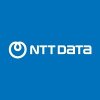


i
Infosys
Filter interviews by
Clear (1)
Infosys Big Data Engineer Interview Questions and Answers
Infosys Big Data Engineer Interview Experiences
5 interviews found
I applied via Company Website and was interviewed in Apr 2024. There were 3 interview rounds.
(2 Questions)
- Q1. Mostly about spark topics like shuffeling joins, data skew, and pyspark scenarios
- Q2. Mostly about python and sql scenarios
(2 Questions)
- Q1. About behavioural questions
- Q2. Day to day work and workflow model based questions
(2 Questions)
- Q1. Why you need to join infosys
- Ans.
I want to join Infosys because of its reputation for innovation and growth opportunities.
Infosys is known for its cutting-edge technology solutions and innovative projects.
I am impressed by Infosys' commitment to employee development and career growth.
I believe that joining Infosys will provide me with the opportunity to work on challenging projects and enhance my skills.
- Q2. Self introduction
Interview Preparation Tips
Rate your
company
🤫 100% anonymous
How was your last interview experience?

I applied via Company Website and was interviewed in Nov 2023. There were 3 interview rounds.
(1 Question)
- Q1. Overall exp was good
(1 Question)
- Q1. Overall exp was good
(1 Question)
- Q1. Salary discussion
I applied via Referral and was interviewed before Apr 2023. There was 1 interview round.
(2 Questions)
- Q1. Tell about your last company project in depth
- Q2. What is spark why it is faster than Hadoop
- Ans.
Spark is a fast and distributed data processing engine that can perform in-memory processing.
Spark is faster than Hadoop because it can perform in-memory processing, reducing the need to write intermediate results to disk.
Spark uses DAG (Directed Acyclic Graph) for processing tasks, which optimizes the workflow and minimizes data shuffling.
Spark allows for iterative computations, making it suitable for machine learning...
Interview Preparation Tips
- SQL
- Spark
- Python
- boto3
Skills evaluated in this interview
Interview Questionnaire
1 Question
- Q1. What is spark
- Ans.
Spark is an open-source distributed computing system used for big data processing and analytics.
Spark is built on top of Hadoop and provides faster processing of data due to in-memory computing.
It supports multiple programming languages like Java, Scala, Python, and R.
Spark has various components like Spark SQL, Spark Streaming, MLlib, and GraphX for different use cases.
It can be used for batch processing, real-time pr...
Interview Preparation Tips
Skills evaluated in this interview
Infosys interview questions for designations
I applied via Other and was interviewed before Nov 2020. There was 1 interview round.
Interview Questionnaire
1 Question
- Q1. What is bigdata
- Ans.
Big data refers to large and complex data sets that cannot be processed using traditional data processing tools.
Big data is characterized by the 3Vs - volume, velocity, and variety.
It requires specialized tools and technologies such as Hadoop, Spark, and NoSQL databases.
Big data is used in various industries such as healthcare, finance, and retail to gain insights and make data-driven decisions.
Interview Preparation Tips
Skills evaluated in this interview
What people are saying about Infosys






Interview questions from similar companies

I applied via Naukri.com and was interviewed in Aug 2020. There were 3 interview rounds.
Interview Questionnaire
1 Question
- Q1. Oops Concepts and Data Structure Questions.
Interview Preparation Tips

I applied via Campus Placement and was interviewed before Feb 2020. There were 6 interview rounds.
Interview Questionnaire
4 Questions
- Q1. Was interviewed as fresher?
- Q2. Written test conducted? with verbal ability test ? GD
- Q3. How would u deal with a problematic situation when you are working in a team?
- Q4. What are your plans about higher studies?
Interview Preparation Tips

I applied via Campus Placement and was interviewed before Dec 2021. There were 2 interview rounds.
Basic logical reasoning and verbal questions . Easy to clear
(2 Questions)
- Q1. 1.Tell me about yourself? 2.What are Your achievements?
- Q2. 3. Your strengths? 4. How did you face a situation using your key skills?
Interview Preparation Tips

Interview Questionnaire
1 Question
- Q1. About my college projects and about my passion

I applied via Campus Placement and was interviewed before Oct 2020. There were 3 interview rounds.
Interview Questionnaire
3 Questions
- Q1. About project done
- Q2. Core Java basics
- Q3. NodeJs basics
Interview Preparation Tips
Infosys Interview FAQs
Recently Viewed
Tell us how to improve this page.
Infosys Interviews By Designations
- Infosys System Engineer Interview Questions
- Infosys Software Engineer Interview Questions
- Infosys Technology Analyst Interview Questions
- Infosys Associate Consultant Interview Questions
- Infosys Senior Systems Engineer Interview Questions
- Infosys Software Developer Interview Questions
- Infosys Business Analyst Interview Questions
- Infosys Senior Associate Consultant Interview Questions
- Show more
Interview Questions for Popular Designations
Infosys Big Data Engineer Interview Process
based on 3 interviews
1 Interview rounds
- Technical Round
Big Data Engineer Interview Questions from Similar Companies
Fast track your campus placements
Infosys Big Data Engineer Reviews and Ratings
based on 11 reviews
Rating in categories
|
Technology Analyst
55.6k
salaries
| ₹0 L/yr - ₹0 L/yr |
|
Senior Systems Engineer
50.7k
salaries
| ₹0 L/yr - ₹0 L/yr |
|
System Engineer
39.6k
salaries
| ₹0 L/yr - ₹0 L/yr |
|
Technical Lead
30.7k
salaries
| ₹0 L/yr - ₹0 L/yr |
|
Senior Associate Consultant
28.1k
salaries
| ₹0 L/yr - ₹0 L/yr |

TCS

Wipro

Cognizant

Accenture
- Home >
- Interviews >
- Infosys Interview Questions >
- Infosys Big Data Engineer Interview Questions













